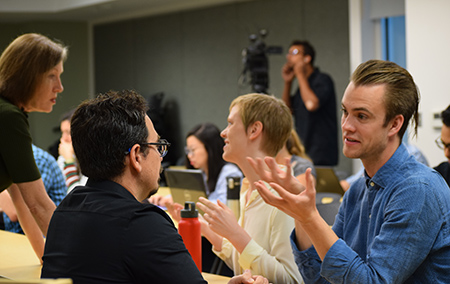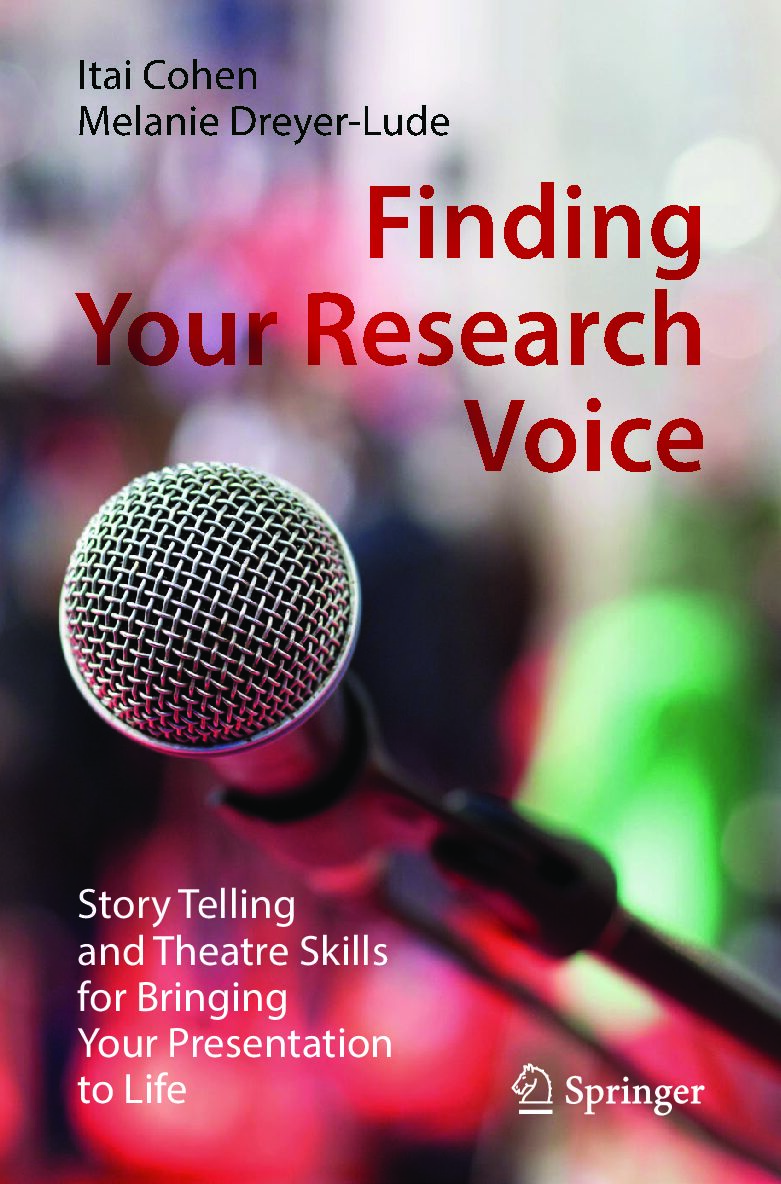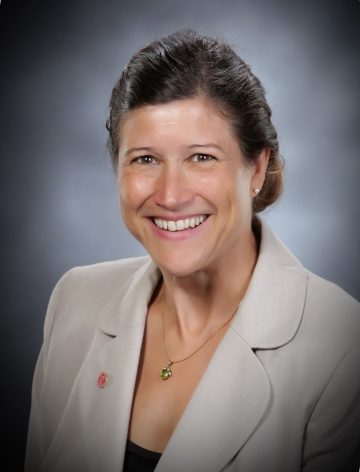
Finding Your Research Voice Workshop
February 9, 2024 @ 9:00 am - 4:00 pm
- This event has passed.

February 9 and 10 (9am-4pm both days, must attend both)
Learning to tell a compelling research story can have a significant impact on your career. It can make you stand out at professional conferences, pitch competitions, on the job market, or during an ideal networking opportunity. It is easy to tell a research story badly. We provide specific presentation ideas and field tested exercises that will help you improve your talk. Once you’ve learned how to create a dynamic live performance of your research story, you may come to enjoy presenting in public.
This workshop will intensively work your own research presentation and hone your engaging story through a core message. We incorporate theatrical/improv techniques and video feedback to improve your use of body, voice, gesture and to capture wording that resonates with your audience. These workshops have led to a published book that summarizes the exercises and serves as a step-by-step guide to Finding Your Research Voice – Storytelling and Theatre Skills for Bringing Your Presentation to Life. It is fully accessible through the Cornell Library System.

“There are faculty who give terrible talks, and some who make captivating, engaging talks. I want to be in the latter category. That’s why I signed up for this workshop.”–Benjamin Rosche, PhD student, Sociology”
This opportunity is open to PhD students and postdocs in all disciplines, with priority given to those who are ready to present their research. Time: 9 am to 4 pm Friday Feb.9 and Saturday Feb. 10, with an hour lunch break. You must attend both sessions. Due to the intensive, personalized, mentored interactions during the workshop, participation numbers are limited.
This two-day workshop is designed for any grad student or postdoc in the social sciences, STEM, humanities and arts disciplines interested in an immersion to improve their research communication skills.
“We were an image-oriented species way before development of the written word. The way we include pictures in our presentations can determine if a story will bring us together.”–Itai Cohen, Professor, Physics
Register now by Feb. 2:
Complete the online registration form. Questions can be directed via email to: sv27@cornell.edu. Location will be in Willard Straight Hall Room 414 on Friday and in the Physical Science Building 401 on Saturday. Sessions are only held in person and participants must commit to attending both full days. If you were to pay professionals for this kind of training after leaving Cornell, registration would be at least $500-$1,000. Thanks to sponsorship by Cornell Graduate School’s Careers Beyond Academia, the cost to you is nothing!
Learning outcomes for Finding Your Research Voice:
Creating a Core Message
Applying the Dramatic Arc
Connecting with Your Audience
Expressing Passion for Your Research
Finding a Great Beginning
Chaptering Your Story
Signaling the End
Improving Your Voice
Controlling Your Body Language
Incorporating Gesture Effectively
In advance of the workshop:
- Record your 10 minute research talk and upload it to YouTube (if you have a previously recorded talk that’s fine, just the first 10minutes will be viewed). Don’t worry about professional quality, it can be done informally on your computer with Zoom. Make sure the audio can be heard. Your 10 minute talk should cover something you would present at a conference, perhaps in a longer format. An hour long talk is often comprised of three separate but linked 10 minute talks. Choose the research idea that you are most passionate about as the subject for your talk. Make sure you do not disclose any proprietary information (hopefully you consider this with every talk).
- Send the private link by February 2- (or public if you are using a prior recording) to Itai Cohen (itai.cohen@cornell.edu) and Susi Varvayanis (sv27@cornell.edu). We will review your talk, speak about what we see during the workshop, and offer concrete tips for improvement. This is an essential way you will get the most out of this workshop!
- Draft a 1 minute (approximate) Elevator Pitch of your core research message to bring to the workshop. We will use your Elevator Pitch to hone your core message and to work on your performance skills. You may write it down and email it to us ahead of time if you would like feedback prior to the workshop.It should include who you are, what you do, what you’ve found, and why it is important. This is a short persuasive speech about you and your work. It should last no longer than an elevator ride (30 seconds to 2 minutes) and should be carefully crafted to maximize both information and interest during short encounters with important contacts. An elevator pitch is a 3-4 sentence summary of the main point of your talk. Briefly:
-
- Identify the problem and why it is so important
- Explain why this has not yet been solved
- Explain how you will solve and why you are the person to do it
Facilitated by:
 Itai Cohen, Professor of Physics
Itai Cohen, Professor of Physics
Cornell University
http://cohengroup.lassp.cornell.edu
itai.cohen@cornell.edu 617-304-2131
 Susi Varvayanis, Executive Director
Susi Varvayanis, Executive Director
Careers Beyond Academia
Cornell University Graduate School
gradcareers@cornell.edu
Accessibility Requests:
We strive to make our events accessible to all community members. Individuals who would like to request accessibility accommodations should contact gradcareers@cornell.edu. We ask that requests be made sufficiently in advance to help ensure they can be met.



